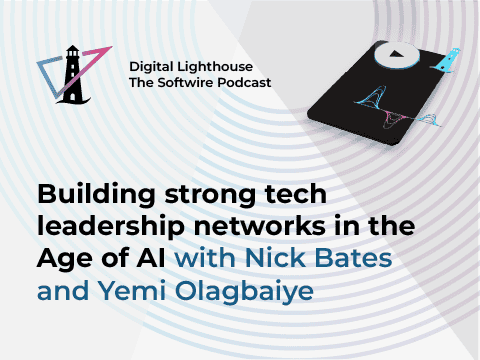
As the first peak of the COVID-19 pandemic begins to tail off, we’ve begun to reflect on the changes seen over the past two months both at Softwire, and across our clients. The pressure on every organisation to adopt remote working has stress-tested systems and required cultural changes which would normally have taken years to embed.
Technology functions are being forced to quickly adapt, shifting their focus away from strategic change programmes to support the immediate need for business continuity. This is proving to be a huge challenge for companies with a significant legacy estate and working practices which require co-location. For those who have invested in technology modernisation – whether through the introduction of online collaboration tools or migration to the Cloud – we’ve seen much less disruption, and they are reaping the benefits now, and continuing to optimise systems and processes for the long term.
The latest updates from the government make it clear that remote working will be preferred for many months to come. With a more remote workforce becoming the norm, how do you continue to optimise, and ensure that you are setting your team and business up for the long term? Having seen the challenges faced by many of Softwire’s clients, particularly in Financial Services where legacy systems and a culture of in-person working are common, businesses need to focus on two key things.
Accelerate Modernisation Programmes
Teams need to communicate faster, collaborate better and share knowledge across multiple channels. It’s no longer possible to sit down next to a colleague to review something on screen, so your tools need to support screen-sharing and annotation to allow effective collaboration. Developers can’t tackle a difficult issue together unless you’re using a modern toolset which allows concurrent editing. And rapid feedback on new features or designs is hard to get, unless you have a seamless way of sharing screenshots or prototypes among your teams.
Newer versions of productivity suites are built with remote working in mind. Office365 and Google Docs allow real-time collaborative editing. Teams and Slack enable fine-grained channels to be created for focused communication, and instant video calls and screen shares to discuss difficult problems. But adoption of newer tools in large organisations is often years behind the curve, and this is hampering productivity now that teams are remote by default – and when IT doesn’t provide a solution, teams who want to communicate with colleagues will adopt their own solutions, often in an uncontrolled and unmanaged fashion. We’ve seen an explosion in different toolsets being adopted, with some organisations using Slack, Zoom, Jitsi and Whereby in different corners, causing friction between departments and headaches for IT.
To avoid this, empower your IT tools to move quickly and provide default solutions. Be flexible in trying different options, but choose one that works well across your organisation and quickly roll it out to everyone in the business to ensure consistency. It’s also important however to see this as an opportunity to accomplish changes which previously would have seemed impossible in the face of stakeholder resistance. The pressing need for change can also allow companies to fast-forward improvements in their ways of working, and I’d encourage people to think big and be ambitious in what they try to do over the coming months.
Embrace Cultural Change
With everyone working remotely, it’s difficult to assess team morale and can be challenging to understand the cultural changes which are being forced by circumstance. Teams which have slowly developed cultural norms and practices around face-to-face contact are seeing those fall apart, particularly when organisations are slow to adopt collaboration tools. At Softwire, we’ve adapted by moving meetings and socials online where possible, removed sessions which just can’t work remotely and created new structures to plug the gaps and keep people feeling engaged. This includes online weekly catch-ups with our MD to keep communication flowing, as well as virtual pub socials, where people can gather after work and catch up with colleagues who they’d normally see around the office. We have found that videoconferencing tools are key in making these sessions work and that people feel more energised and engaged when they’re able to see the people they’re speaking to – once again, companies who are behind the curve in adopting modern collaboration tools will be suffering here, often without realising it.
It’s critical to consider the changes that you need to make to ensure that team morale doesn’t falter, and your teams don’t burn out. With many people having to convert their normal social spaces, bedrooms or kitchen, into working spaces they may need company support to give a sense of structure to their day – ring-fencing lunch breaks, or telling them when to switch off at the end of the day, for example. It’s also important to make sure that you are building operational resilience into projects and to reduce the ‘bus factor’ as much as possible to prevent business impact if key people are unable to work due to illness or family needs. We have tried to build additional flexibility into our working arrangements at Softwire to account for needs such as childcare, and our senior management are visibly making use of that flexibility in order to set the tone for the company.
So, what does all this mean for Financial Services in the long term? As with many industries at the moment, understanding the lasting impact of COVID-19 will take time and so building resilience and adaptability into your business right now is critical. Key to this is investment in modernising your tools and culture, and not just guessing what the future might look like, but actively cultivating a vision for your teams and technology. This is a stress test on your people and your systems, so don’t be afraid to pinpoint things which aren’t working now, and make bold changes as the situation allows. One thing is for sure though — FS organisations have to be ready to evolve their culture, tools and ways of working, but the potential rewards are huge if they get it right.


